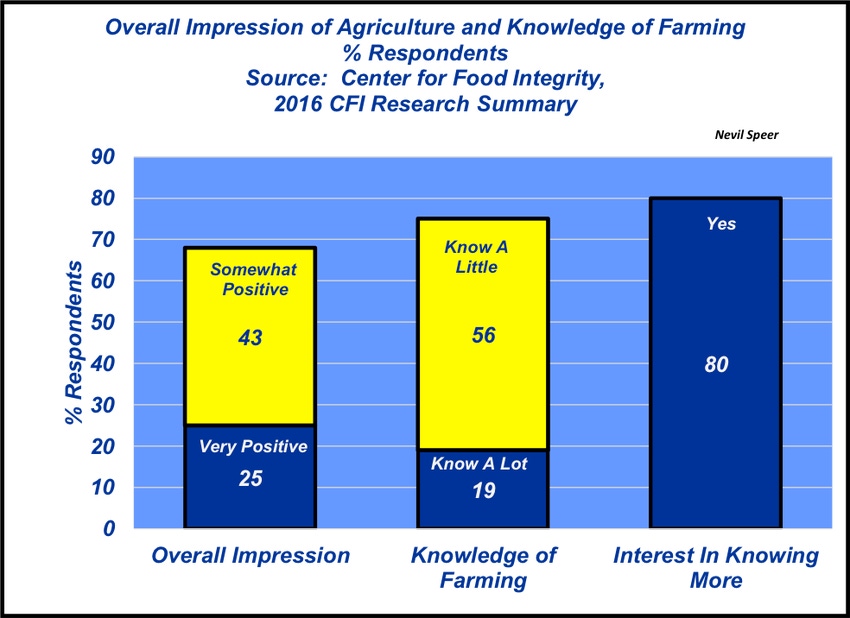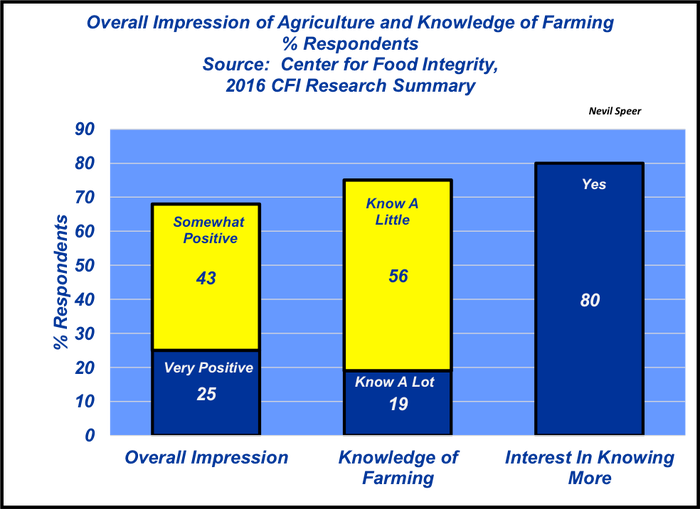Here are the most trusted sources for food-related issues
Four out of every five people are open to learning more about how their food is produced. That’s a clear opening for agriculture in terms of its communication efforts.
June 20, 2017

Last week’s Industry At A Glance focused on recent survey results from the Center for Food Integrity (CFI): Inside the Mind of Influencers – The Truth About Trust. Survey participants were asked about their most trusted sources around food related issues. The good news was that farmers made the list – but that bad news is they ranked below six other sources including nutrition advocacy groups, which often can be agenda-driven.
Meanwhile, this week’s illustration features respondents’ overall impression, knowledge, and interest in knowing more about food and agriculture. Nearly 70% of respondents possessed either a very positive (25%) or somewhat positive (43%) impression of food and agriculture.
Meanwhile, nearly 80% expressed an interest in knowing more about the food system and where food comes from. Lastly, nearly one in five (19%) declared high knowledge of farming/agriculture and over half (56%) expressed having some knowledge about food production.
This week’s data is generally favorable. That is, consumers appear to perceive the food industry from a positive viewpoint despite many of the stories to the contrary – especially in social media. For more on that see Everybody Lies, Maybe Even About Food.

Moreover, four out of every five people are open to learning more. That’s a clear opening for agriculture in terms of its communication efforts. And if agriculture could capitalize on that opening, perhaps farmers/ranchers would move up the list of most trusted sources.
How do you perceive these results? Are you surprised by the data? Do you perceive consumers becoming more favorable towards agriculture? What needs to be done to take advantage of these perceived openings? Leave your thoughts in the comments section below.
Nevil Speer is based in Bowling Green, Ky., and serves as vice president of U.S. operations for AgriClear, Inc. – a wholly-owned subsidiary of TMX Group Limited. The views and opinions of the author expressed herein do not necessarily state or reflect those of the TMX Group Limited and Natural Gas Exchange Inc.
About the Author(s)
You May Also Like





